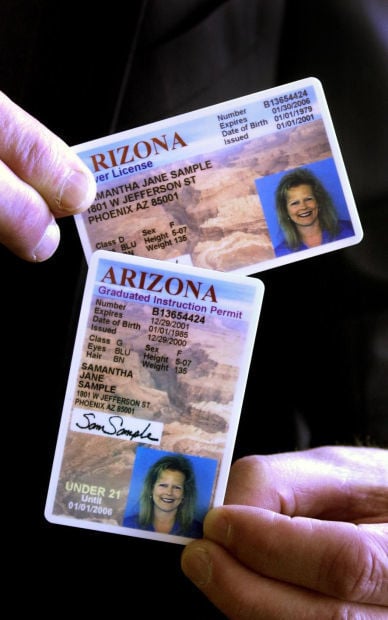PHOENIX — A federal judge has rejected efforts by the Ducey administration to deny driver’s licenses to some deferred-action recipients, even after a federal appeals court ruled the state is legally required to provide licenses for others with similar legal status.
In a sometimes sharply worded ruling granting a permanent injunction against the state, Judge David Campbell pointed out that the 9th Circuit Court of Appeals told Arizona years ago that “dreamers,” young people who were brought here illegally by their parents, with certain Employment Authorization Documents are lawfully present in this country and cannot be denied licenses. Since then, the state has complied and those in the Deferred Action for Childhood Arrivals program have been licensed.
Yet state officials have refused to provide licenses to others in different deferred-action programs to whom the federal government issued the same employment documents, like domestic-violence victims. And that, said Campbell, is illegal.
“The federal government makes no distinction,” the judge wrote.
In his new ruling, Campbell also said the record shows the state has been playing litigation games, changing its policies in an attempt at first to justify denying licenses to dreamers and, when that didn’t work, to deny licenses to other deferred-action recipients.
The ruling will require the state to begin issuing the licenses to others under deferred-action programs, although the state could seek a stay.
Gubernatorial press aide Daniel Scarpinato said the governor and the state Department of Transportation, who have been using taxpayer dollars to hire a private attorney to defend the policy, will be reviewing the ruling before deciding how to respond and whether to appeal.
But Nicolas Espíritu, an attorney with the National Immigration Law Center, said it is a clear — and crucial — victory for potentially 1,000 people who the state said should not get licenses to drive.
“These individuals will be able to go into MVDs throughout the state and present the same documents as all other individuals who are just like them, who have a document that proves their identity and proves their authorization to be in the country, and they’ll be able to get a driver’s license,” he said.
The case is a spinoff of the original lawsuit filed against the state after then-Gov. Jan Brewer directed ADOT not to issue licenses to those who were part of the Deferred Action for Childhood Arrivals program enacted by the Obama administration. That program allows those who arrived illegally in this country as children to remain without fear of deportation.
More significant for purposes of this lawsuit, they were granted Employment Authorization Documents allowing them to work here legally.
Attorneys for the state argued that DACA status is merely an administrative decision not to deport the dreamers. And they said DACA recipients do not meet the requirement of a 1996 state law that says licenses are available only to those whose presence in the country is “authorized by federal law.”
A federal appeals court quashed the state policy, ruling only the federal government can decide who is in this country legally. And with that the state began issuing driver’s licenses to DACA recipients.
One issue in that lawsuit was that the state was not being fair, as it had been providing licenses for years to those living here illegally who were in other deferred-action programs. These included domestic-violence victims, those with pending visa applications and those allowed to stay in the country for humanitarian reasons.
So in its bid to justify denying licenses to the dreamers, the state stopped issuing licenses to those in these other groups.
The appellate court ruling on behalf of the dreamers did not help them, as they were not plaintiffs in the original lawsuit. So the National Immigration Law Center sued on their behalf.
In his new ruling, Campbell took notice of the changes in state policy.
He pointed out that Arizona had no problem in giving licenses to these other deferred-action recipients, relying on those federally issued Employment Authorization Documents as proof of their legal presence. Only when it proved to be legally inconvenient, Campbell said, did ADOT change its mind.
“Given this history, the court concludes that ADOT’s policy changes have been made either because of Gov. Brewer’s disagreement with the federal government’s DACA program or in an effort to defend the resulting policy in court,” the judge wrote.
But this wasn’t the only bit of legal gamesmanship that Campbell found the state conducting.
Last year, attorneys for the state told Campbell there was no need for the lawsuit. They argued that ADOT has always allowed deferred-action recipients like the individuals who sued to get licenses. All they had to do was present certain other documents.
The judge was not impressed.
“Again, it appears that ADOT changed its policy to bolster its defense in court,” Campbell wrote. And he brushed aside claims that it wasn’t really a change in policy but simply a clarification, pointing out that ADOT Director John Halikowski “testified that he did not know whether any employee other than himself was aware of such a policy.”





